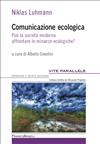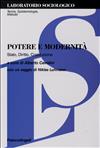Despite the fact that insurance is a ubiquitous core institution of modern society, a sociological theory of insurance does not yet exist. This article aims at suggesting some hypotheses which can help filling the gap. Insurance has been pertinently defined as "the archetype of modernist governance of the future". Consequently, a sociological research on insurance institution should answer three preliminary questions: First, when we talk about the future, what are we actually talking about? Second, how is it possible to govern the future in the present? Finally, what is the modernity of this modernist governance of the future, and why does insurance represent its archetype? Moving from a comparison between prudence and providence, it is suggested that insurance turns uncertainty into possibilities. In this way, the decision-maker who takes out insurance can plan for the planningness of the future - that is, whatever happens, he relies on an open future. This article suggests, eventually, that the theory of evolution is conceptually well equipped to explain why an institution that at the beginning (that is, in the late Middle Ages) was regarded as a form of deviation has become normal over time.



